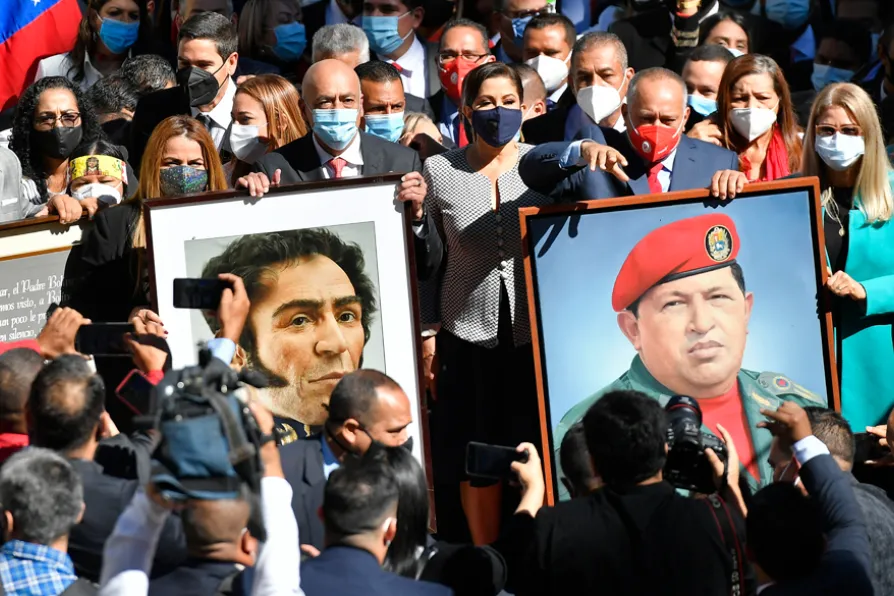As the RMT Health and Safety Conference takes place, the union is calling for urgent action on crisis of work-related stress, understaffing and the growing threat of workplace assaults. RMT leader EDDIE DEMPSEY explains

 THE STRUGGLE CONTINUES: Incoming parliamentary members, with images of Hugo Chavez and independence hero Simon Bolivar on their way to the National Assembly on Tuesday January 5 2021
THE STRUGGLE CONTINUES: Incoming parliamentary members, with images of Hugo Chavez and independence hero Simon Bolivar on their way to the National Assembly on Tuesday January 5 2021
DESPITE enormous costs to its economy and its people imposed by illegal US sanctions, Venezuela has seen off President Donald Trump’s term in office and his clear goal of toppling the elected government of Nicolas Maduro.
From his earliest days in office, Trump had drastically ratcheted up the sanctions first levied against Venezuela by the Obama administration, increasingly meaning there is a full-on Cuba-style US blockade of the country.
Accompanying them have been constant threats of military action and a persistent campaign of disinformation designed to turn countries and opinion against Venezuela internationally, and support Trump’s objective of “regime change.”

The US attack on Venezuela raises grave threats to Cuba and the region, writes NATASHA HICKMAN of Cuba Solidarity Campaign

International solidarity can ensure that Trump and his machine cannot prevail without a level of political and economic cost that he will not want to pay, argues CLAUDIA WEBBE

The global left must be unwavering in it is support for Venezuela as Washington increases its aggression, and clear-eyed about the West’s cynical motives for targeting it, says CLAUDIA WEBBE











